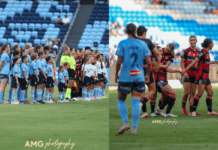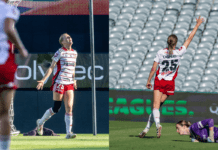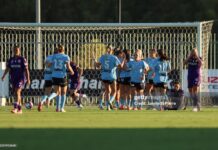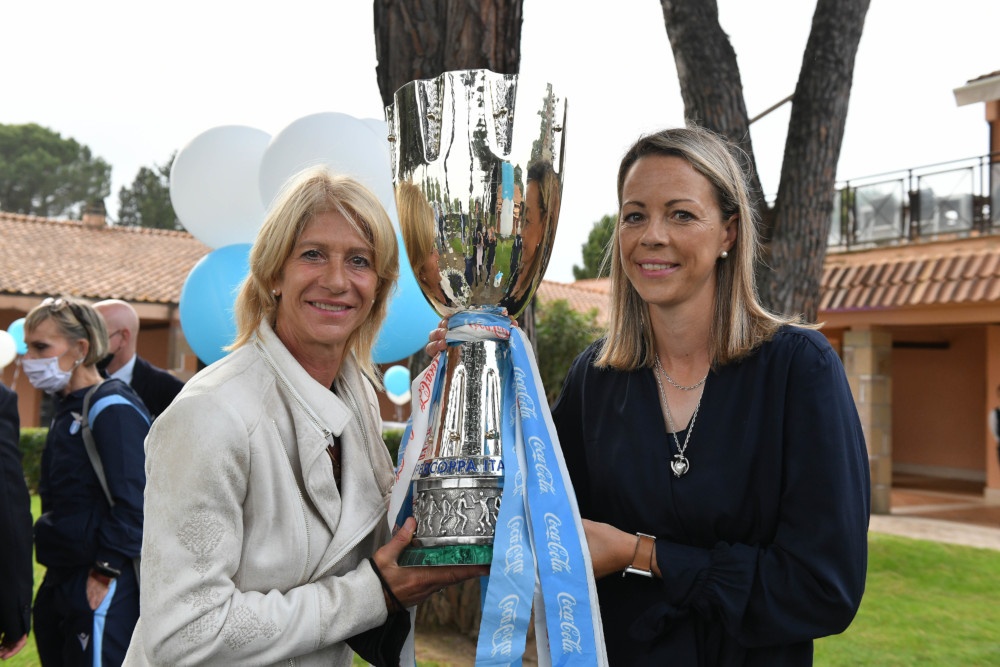
A fine footballer in her own right, Nicola Williams played for the Western Waves in the Women’s National Soccer League (the precursor to the W-League). Her career in coaching has since surpassed those playing achievements.
Williams is now the assistant coach at S.S. Lazio, whom she helped guide to promotion in the Serie A last season. A recent visit to her hometown Perth was a great opportunity to catch up with one of Australia’s most credentialled female coaches.
Landing at S.S. Lazio
Williams’ journey to Rome has been full of twists and turns, but she has always been driven by her desire to be a full-time coach. She worked her way through the various levels of coaching in the Australian system and eventually gained her pro license.
“[That was] really good, but I was still looking for a full-time job. I was working with Australian national teams and had a stint with a W-League team here, but again, all of those were part-time positions. Then in 2017, I got a chance to work with Trinidad and Tobago’s national team. I applied for that and got that position along with Carolina Morace who I work with and still do.
“Then after that, I moved to Italy for about six months, learnt the language and that’s when we got called up for a role at A.C. Milan. [Because] they’re really pushing to have professional football and my Australian licenses weren’t recognised I had to start my UEFA licenses.”
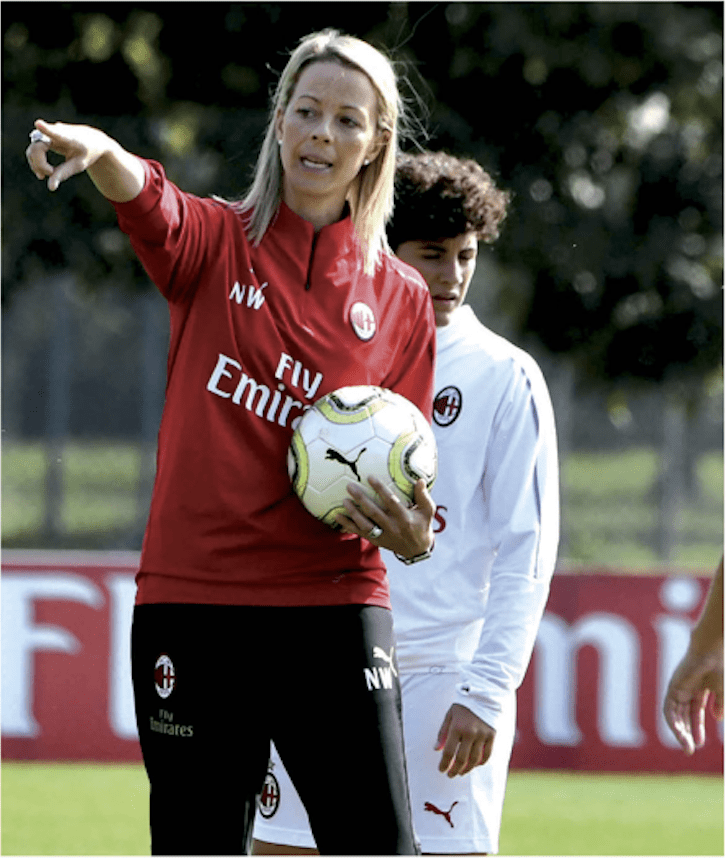
The assistant coaching role at A.C. Milan finished when there was a change in senior management. Williams found herself teaching at a high school in Rome while working her way through her UEFA licenses. The S.S. Lazio manager at the time realised that if the club were to get out of Serie B then they needed high-quality coaches, recommending Morace and Williams to the club.
When the pair came on board at S.S. Lazio, they worked at convincing the players that they needed to make sacrifices if they wanted to achieve their goal of promotion.
“We had to say to the players, look, if that’s the objective and that’s what you want to do and get to Serie A, it’s going to need a commitment from you because we need to train every day. You need to be fitter as we want to change the way we play into a pressing game. We need that from you if this is to work.
“The players could see we had already started doing video analysis, worked more in the gym and got them extra resources and they came on board. We won promotion and now the position is full time.”
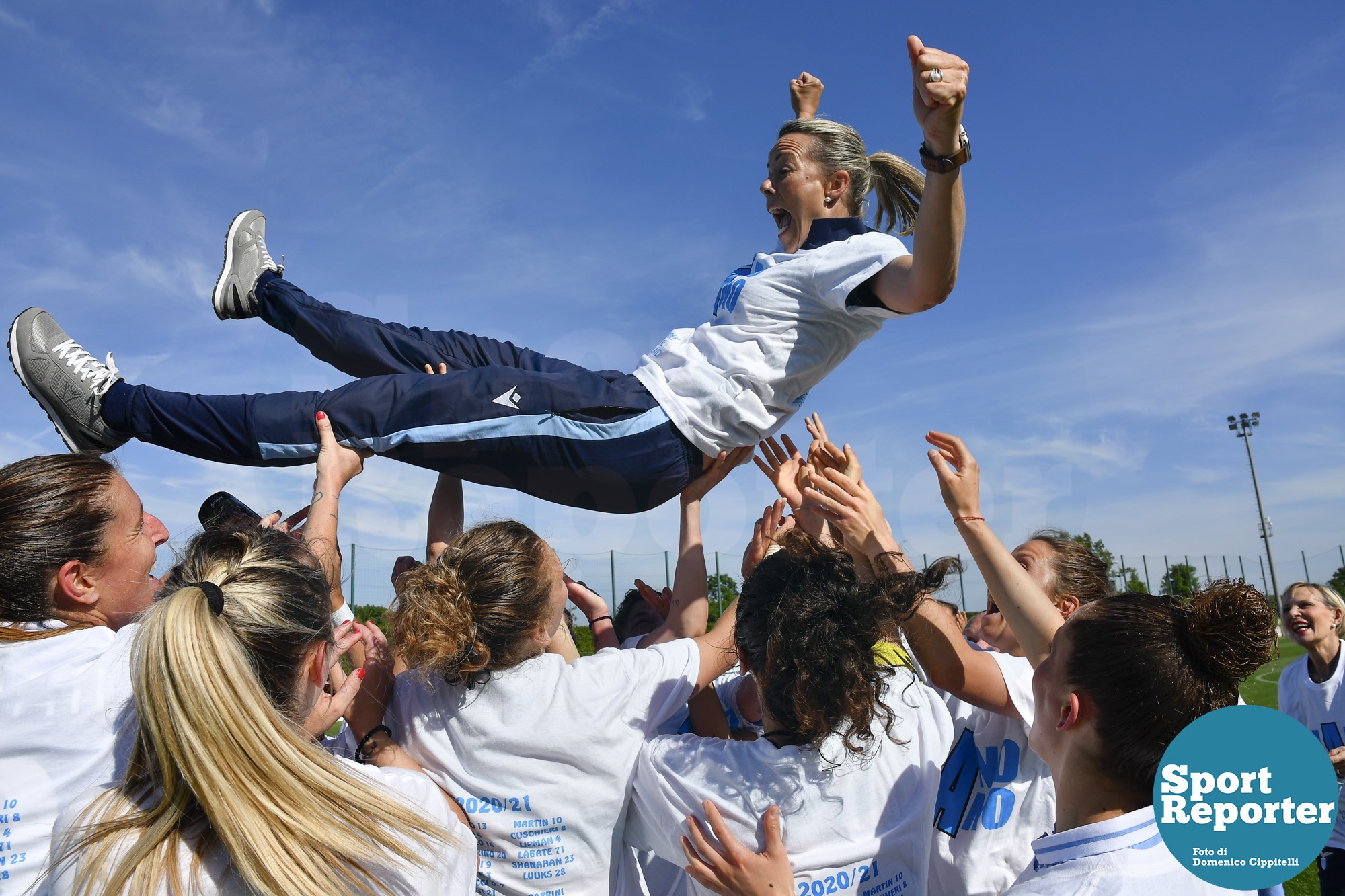
Domenico Cippitelli
Working around the world
Having worked in three different countries, Williams has a unique insight into women players around the world. On the differences between players from different backgrounds, she said, “There are definitely cultural differences in terms of an athlete, and you can see that when you start doing physical testing and you can see then different types of athletes and where their strengths are.
“So, for example, working with Australian players they have an all-around athleticism, and test results are very high on most aspects from speed to jumping and endurance, and I think that’s why sometimes when I started, we say, oh, this player can play in every position.
“In Italy, the players from a young age specialize in a position and that’s also based on their physical characteristics. So, you’ll see that some are better in the yo-yo test. Some are better in endurance environments; some are better in sprint strength and explosivity and that kind of depicts where they’re going to play on the field as well.
“In Trinidad, my goodness, some of the athletes there were very explosive and had some really high squat and jump test results, but they were very poor on something like the yo-yo test.”
In addition to cultural differences between athletes, Williams has also noticed variation in how players prepare for training and games. “In Trinidad, the players would pray before the session as they were very grateful to get safe passage to arrive at the field and get home safe because there were a lot of issues there and it was a dangerous country to live in, in that sense.
Whereas in Italy they’re very superstitious, so where they sit for a meeting or on the bus or for your lunch has to be the same and you can’t throw too many curveballs. There was a player that she would put salt behind the goalposts and that was their way of doing it.
“The Aussies, I think we just get along with things, you know, but we don’t like Asian food very much for breakfast, so we used to have to take Weetbix and Vegemite and all the things that we’d want to eat. So everywhere has got their things, but I think as humans we’re like that anyway.”
Williams was complimentary of Australia’s work in the players’ welfare and professionalisation space. “Australia’s probably ahead on the whole players association, the CBA agreements, whereas Italy is just coming towards using that. For example, Australia has a minimum wage that you’d get, whereas Italy has a maximum wage because they’re not professionals yet, so they’re still pushing.
“In Italy, there’s no female sport that’s considered professional by CONI, which is their Olympic organization of sport. So that’s all being looked into, and the federation is working to try and improve that. In Trinidad [Carolina and I] were leading the program and setting the standards and mirroring what Carolina had done in Canada.”
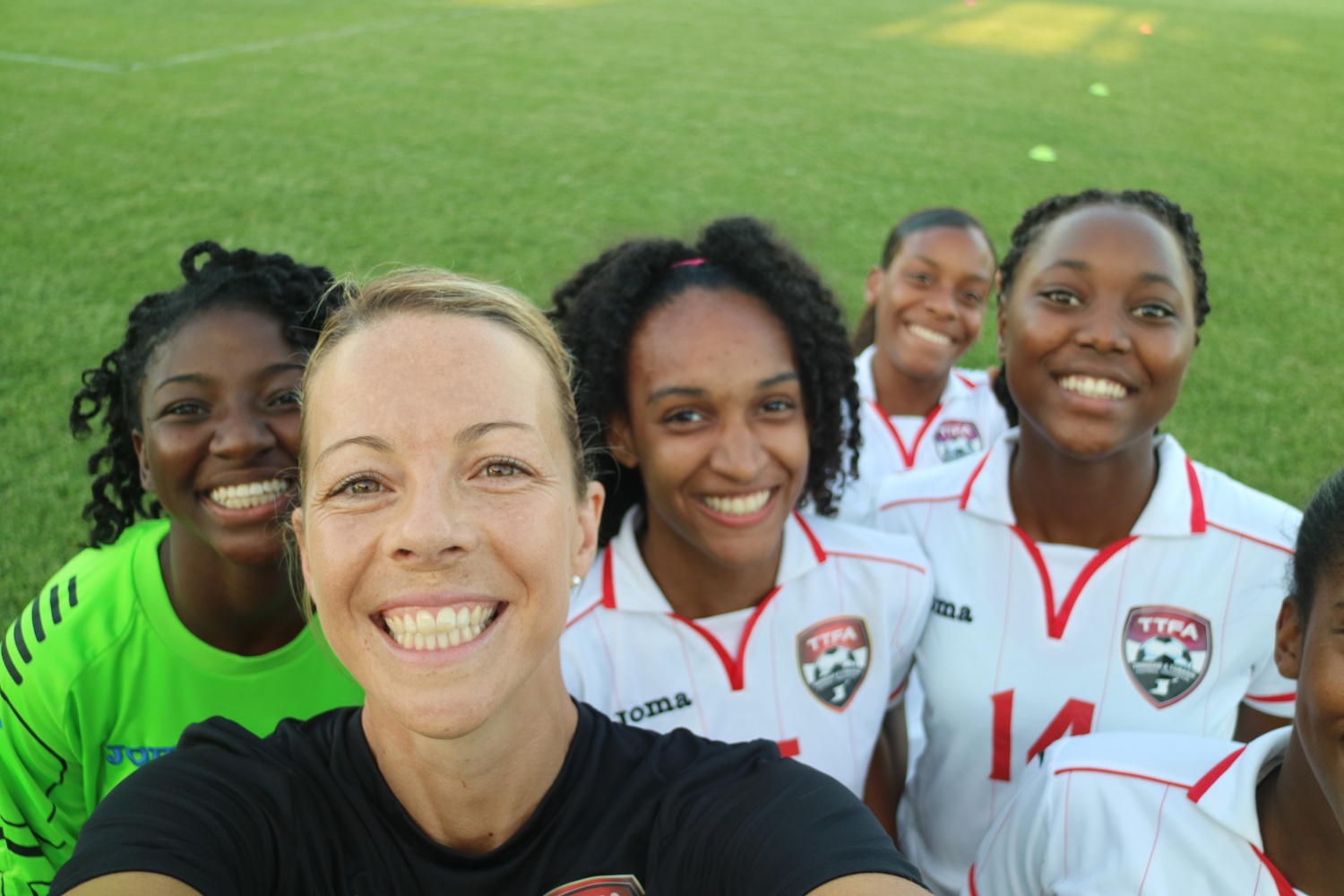
Improvements in Italy
The recent win by the Italian men’s team in the 2021 Euros has reignited interest in the game in Italy. “Well, huge. huge. I mean, it’s really good,” Williams says of the Euros’ impact. “I think it’s something that’s put Italy back on the map, and I think it’s displayed a little bit more about Italian football because for many years the cliché has been they ‘just play Catenaccio’. You know, they sit back and defend, but it’s not like that, and it’s not been like that for a number of years. If you watch a Serie A men’s game, it’s very aggressive and that is something we’re trying to implement into our team.
“That success has now got to translate to the women’s team as they’ve been doing well and have qualified for the Euros in 2022 as well,” she notes. “[In terms of attitude] it’s improved a lot. It’s now a very competitive league and Juventus have set the standard because when they entered, they were treated as equals by the club. They had a lot of investment in players and basically had the Italian national team plus a few foreign players come in. So, they really set the benchmark.
“A.S. Roma have really pushed standards as well and I think what helps them is their social media background. They’re really, really heavy on that, and I think social media has helped promote a lot of things. They’ve signed a number of very high-level international players and then there’s Inter Milan, A.C. Milan, Fiorentina this year, us, Napoli, and Sampdoria. So, standards are rising and there’s investment from the men’s clubs, but that varies.”
The upcoming season will prove to be a big step-up for S.S. Lazio. “We will be going into Formello, which is the men’s training centre, whereas at all the other centres apart from Juventus, they all train in the youth sector of the club. But when you work within the youth sector, you’re limited in terms of the size of the changing rooms, the size of the gym, and you need more space and more resources for the women’s team than you do for youth players.”
Williams is aware of the pressure the club will face while competing against the likes of Juventus and A.S. Roma. “Well look, we’re going to be new into the league, but [Carolina and I have] experienced it before, so we understand the standards and we understand how difficult it is, player for player. Obviously, we are building a team, so we won’t have the same standard of player as others.
We won’t have any Italian international players in our team, for example, but we have younger players that we want to develop and bring them into being enabled to be selected for Italy. We’ve got a longer-term plan rather than going straight in there and wanting to compete in the top spots.
“We want to develop some Italian players and bring some experience from overseas with players that we know that can give that experience to those local players we want to grow. We obviously want to be competitive and every game for us we want to make sure we make it difficult for the opponents. We’ll be going out there with the mindset that everyone can be beaten and we’re going to hopefully be that team that upsets everyone.”
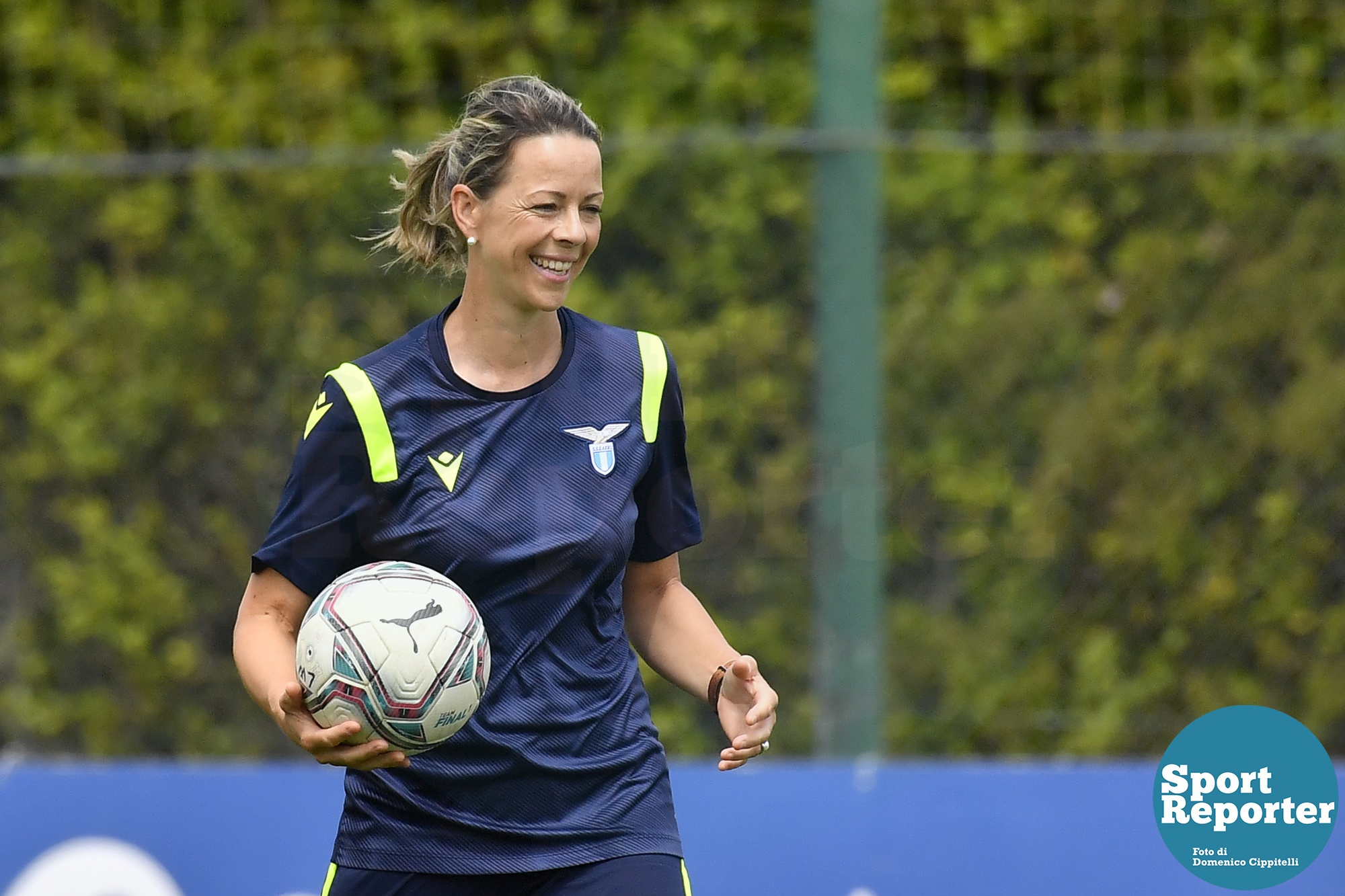
The mark of the Matildas
As an ex-youth team national coach, Williams was involved in the development of several current Matildas, including Sam Kerr who she coached at state level for WA.
Of the Matildas’ recent results, Williams says “I think they had such an amazing result at the Olympics, despite not being together very much in the last year or two due to COVID and having to integrate the W-League or players that are based in Australia, and so it’s been tough for them.
“I think it’s going to take more time to gel and to develop their game plan, but I think that the games they have been playing they’ve been getting better each time. They look more solid but they’re in a real difficult patch or a bit of transition with not just coaching, but the team where they’re at. So it’s a rebuild, but I think they’ve realised that’s probably the objective. The latest reports that I’ve been listening and seeing is more, ‘all right we’re building for the future, transitioning players, bringing some younger ones in’.”
With the 2023 Women’s World Cup now just under two years away, Williams has given plenty of thought to her national team alliances! “When the men play, I support England. When the women play it’s the Matildas. Italy, of course, are close to my heart but I’d want the Matildas to win. The Italians are trying to break into the top ten and Australia is trying to stay in there.
“It depends always on the draw. Depends on the look of the tournament and things like that. Anything can happen.
In the last World Cup, I mean, I was there in the stadium when Italy beat Australia. I was actually sitting with the Italians because that’s where I got my tickets from. I was wearing my Aussie top and copped a little bit of stick also with the players afterwards!
“But you know, [an Australia Italy grand final] can happen. I think Italy’s got a very consistent squad, a team that has no outstanding player, but just good hardworking players, and they’re now in an environment where they train every day and they work hard. They’ve got the gym, they’ve got resources and so on and medical staff and all of that makes a difference but saying that there’s no real X-Factor and I think Australia have those players that are dangerous, and so do other European teams, the Dutch attack, the French players, the Germans and so on. So yeah, Italy really lacks a real x-factor player or players, but they’re a very consistent team and will work the tactics and work to create problems.”
Football Australia recently launched their High Performance Coaching Initiative. This program indicates recognition from the national body for the need to develop more high-level female coaches, and to provide them with the support and opportunities to take their careers to the highest level.
While Williams has forged her own remarkable path overseas, such intiatives hopefully mean future Australian women coaches will look further afield out of choice, rather than necessity.
We wish Nicola and her S.S. Lazio team the best of luck for the future. With the club signing fellow Western Australian Ella Mastrantonio, they can now be considered our favourite Serie A outfit!
Read more of our Aussies and NZ abroad content


